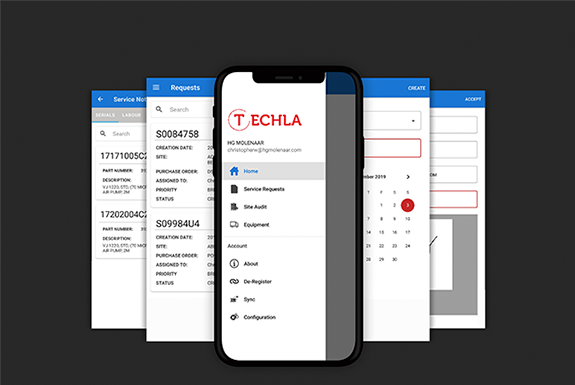Field Service Management (FSM)
Field Service Management (FSM) is increasingly important in the modern age because it optimizes how businesses manage their mobile workforce, customer service, and field operations. The integration of technology in FSM provides real-time visibility, automation, and data-driven insights, which is essential for both companies and clients to thrive in today’s fast-paced environment. Here's how FSM benefits both:
Benefits for Companies:
- Increased Efficiency: FSM systems streamline processes such as job scheduling, dispatching, and inventory management. Automation reduces administrative burdens, allowing companies to allocate resources efficiently, reduce idle time, and maximize workforce productivity.
- Real-Time Monitoring: Companies can track field technicians’ locations, job progress, and performance in real-time. This ensures that jobs are completed on time, and any delays or issues can be addressed immediately.
- Data-Driven Insights: Modern FSM tools provide analytics on field operations, including job durations, resource usage, and customer feedback. This data allows companies to optimize performance, improve service quality, and make informed business decisions.
- Cost Savings: By automating processes like routing and inventory management, FSM reduces operational costs. Minimizing travel time, fuel consumption, and paperwork contributes to lower expenses.
- Improved Communication: Field technicians can easily access job details, customer history, and technical documents through mobile devices, improving communication and reducing misunderstandings between the office and the field.
- Regulatory Compliance: FSM systems help ensure that field activities comply with industry regulations, safety standards, and legal requirements by maintaining accurate records of services performed.
Benefits for Clients:
- Faster Response Times: With optimized scheduling and real-time updates, clients receive quicker service, reducing downtime and improving customer satisfaction. Immediate access to field technicians and updates fosters better communication.
- Enhanced Service Quality: FSM enables field teams to be better prepared and equipped with the right tools and information, leading to higher first-time fix rates and a better overall service experience.
- Transparency: Clients can track the progress of field service operations and see estimated arrival times, job statuses, and technician locations. This transparency builds trust and ensures accountability.
- Predictive Maintenance: FSM systems with IoT integrations can offer proactive services such as predictive maintenance, identifying issues before they become critical. This leads to fewer breakdowns and better-managed assets for clients.
- Personalized Service: Field technicians have access to client-specific data, which allows them to tailor their service approach to individual client needs. This personalization increases customer loyalty and satisfaction.
- Reduced Downtime: With better coordination and quicker service, clients experience less downtime in their operations, which is critical for industries that rely on operational continuity, such as utilities or manufacturing.
Conclusion:
FSM is essential for modern businesses because it leverages technology to improve operational efficiency, enhance customer experiences, and reduce costs. Companies can deliver faster, more reliable services while clients benefit from greater transparency, reduced downtime, and higher service quality. This makes FSM a key component for businesses looking to stay competitive and offer value in the service-oriented economy.
Mobile Application

